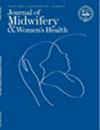Patient-Provider Trust as a Key Component of Prenatal Screening for Adverse Childhood Experiences (ACES): A Concept Analysis
Abstract
Introduction
The concept of patient-provider trust in prenatal adverse childhood experiences (ACEs) screening remains unexplored. This concept analysis illuminates the role of trust in prenatal ACE screening to improve patient-provider relationships, increase patient uptake of ACE screening, and ensure that ACE screening is implemented in a strengths-based, trauma-informed way.
Methods
A concept analysis was conducted using the Rodgers’ evolutionary method to define the antecedents, attributes, and consequences of this construct. The databases searched were PubMed, PsychInfo, and Scopus between 2010 and 2021. A total of 389 articles were retrieved using the search terms prenatal, adverse childhood experiences screening, adverse childhood experiences, and adverse childhood experiences questionnaire. Included articles for detailed review contained prenatal screening, trauma screening (ACE or other), trust or building trust between patient and health care provider, patient engagement, and shared decision making. Excluded articles were those not in the context of prenatal care and that were exclusively about screening with no discussion about the patient-provider relationship or patient perspectives. A total of 32 articles were reviewed for this concept analysis.
Results
We define trust in prenatal ACE screening as a network of evidence-based attributes that include the timing of the screening, patient familiarity with the health care provider, cultural competence, demystifying trauma, open dialogue between the patient and health care provider, and patient comfort and respect.
Discussion
This concept analysis elucidates the importance of ACE screening and provides suggestions for establishing trust in the context of prenatal ACE screening. Results give insight and general guidance for health care providers looking to implement ACE screening in a trauma-informed way. Further research is needed to evaluate pregnant patients' attitudes toward ACE screening and how a health care provider's trauma history might influence their care. More inquiry is needed to understand the racial, ethnic, and cultural barriers to ACE screening.


 求助内容:
求助内容: 应助结果提醒方式:
应助结果提醒方式:


